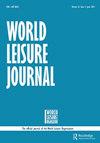千禧一代是野生动物旅游体验的消费者
IF 2
Q3 HOSPITALITY, LEISURE, SPORT & TOURISM
引用次数: 2
摘要
野生动物旅游有利于区域经济和生物多样性保护,但在许多野生动物目的地,游客数量仍低于容量。随着人口老龄化和自然环境压力的增加,吸引年轻一代(千禧一代)参与自然和保护的必要性变得比以往任何时候都更加重要。为了看到千禧一代越来越多的游客,有必要了解他们对野生动物旅游体验的看法和期望,以及如何提高管理效率。为此,我们对处于不同家庭生命周期阶段的南非千禧一代进行了六个焦点小组的调查。研究结果表明,焦点小组参与者对野生动物旅游体验的期望是与野生动物相遇。他们期望这种体验是真实的、负责任的。他们希望有机会参加各种活动,并对参观国家公园表现出浓厚的兴趣。这篇论文有助于对千禧一代及其对自然和野生动物体验的偏好进行有限的研究。从这一队列中获得的见解对野生动物旅游组织在产品开发和物种保护方面具有启示意义。本文章由计算机程序翻译,如有差异,请以英文原文为准。
Millennials as consumers of wildlife tourism experiences
ABSTRACT Wildlife tourism benefits regional economies and biodiversity conservation, yet visitor numbers remain below capacity in many wildlife destinations. With an aging population and increasing pressure on the natural environment, the need to attract a younger generation (Millennials) to nature and conservation is becoming more important than ever. To see increasing visitation from Millennials it is necessary to understand their perceptions of and expectations about wildlife tourism experiences and how that may require improved management effectiveness. To this end, six focus groups were conducted with South African Millennials in different family life cycle stages. The findings show that focus group participants’ expectation of a wildlife tourism experience is to have an encounter with wildlife. They expect the experience to be authentic and responsible. They want opportunities to engage in various activities, and show a keen interest in visiting national parks. The paper contributes to the limited research on Millennials and their preferences for nature and wildlife-based experiences. Insights gained from this cohort have implications for wildlife tourism organizations in terms of product development and species conservation.
求助全文
通过发布文献求助,成功后即可免费获取论文全文。
去求助
来源期刊

World Leisure Journal
HOSPITALITY, LEISURE, SPORT & TOURISM-
CiteScore
3.10
自引率
6.20%
发文量
34
期刊介绍:
As the official journal of the World Leisure Organisation, the purpose of the World Leisure Journal is to stimulate and communicate research, theory, and critical thought in all areas that address leisure, including play, recreation, the arts and culture, sport, festivals, events and celebrations, health and fitness, and travel and tourism. Empirical and theoretical manuscripts, as well as position papers, review articles, and critical essays are published in the World Leisure Journal . The World Leisure Journal is international in scope, and encourages submissions from authors from all areas of the world. Comparative cross-national and cross-cultural research reports are especially welcome. For empirical papers, all types of research methods are appropriate and the subject matter in papers may be addressed from perspectives derived from the social, behavioural, and biological sciences, education, and the humanities. Both pure and applied research reports are appropriate for publication in the World Leisure Journal . In addition to original research reports and review essays, book reviews, research notes, comments, and methodological contributions are appropriate for publication in the World Leisure Journal .
 求助内容:
求助内容: 应助结果提醒方式:
应助结果提醒方式:


